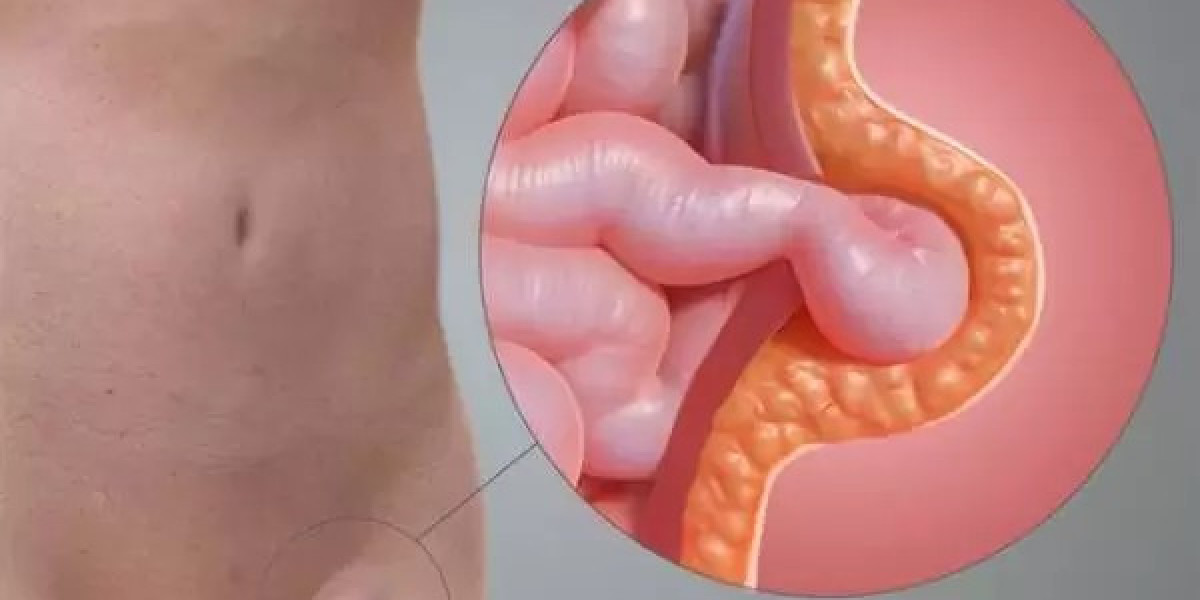Are you experiencing discomfort and pain in your groin area? It could be a femoral hernia—a condition that requires prompt medical attention. Kaizen Gastro Care, the best gastroenterology clinic in Pune, Maharashtra, specializes in the diagnosis, advanced, and comprehensive femoral hernia treatment in Pune, Maharashtra. At our state-of-the-art facility, we specialize in providing personalized care and effective solutions for various types of hernias, including femoral hernias. Our team of experienced surgeons, advanced medical technologies, and patient-centric approach ensure that you receive the highest quality treatment and achieve optimal outcomes.
Our expert Dr. Samrat Jankar is a highly skilled and reliable gastroenterologist in Pune, Maharashtra. Dr. Samrat Jankar also specializes in hernia repair surgery in Pune. He successfully treated thousands of patients, fixing their daily functions whilst removing distress and pain. Dr. Samrat Jankar, a seasoned hernia specialist in Pune, Maharashtra has performed 1000+ hernia repair surgeries via laparoscopy, the most choice and advanced surgical method.
Kaizen Gastro Care is the one-stop solution for all types of hernia treatment in Pune, Maharashtra. The Department of Kaizen Hernia Care Treatment provides complete and compassionate treatment to all patients suffering from various types of hernia in the PCMC & Pune area. Read on as Dr. Samrat Jankar Best Hernia Doctor in Pune, Maharashtra explore the signs and causes of these conditions, and why you might need to see one of our best Hernia specialist in Pune, Maharashtra.
What is Femoral Hernia?
A femoral hernia is a condition characterized by the protrusion of abdominal contents through the femoral canal, a smallish opening located in the groin region. It is more commonly observed in women, especially those who are pregnant or have given birth. If left untreated, femoral hernias can lead to severe complications, including bowel obstruction and strangulation, making early diagnosis and timely treatment required.
What are the Types of Femoral Hernia?
There are two main types of femoral hernia based on their location and relationship to surrounding structures:
- Indirect Femoral Hernia: This is the more common type of femoral hernia. In an indirect femoral hernia, the herniated sac moves through the femoral canal, passing through the femoral ring. It then travels downward and outward, following the course of the femoral vessels. Indirect femoral hernias can be located below and lateral to the pubic tubercle.
- Direct Femoral Hernia: Direct femoral hernias are less common than indirect femoral hernias. In this type, the herniated sac protrudes directly through the posterior wall of the femoral canal, usually medial to the femoral vessels. Direct femoral hernias are usually located below the inguinal ligament, more medial to the pubic tubercle.
What are the causes of Femoral Hernia?
The causes of femoral hernia are not always clear-cut, but they often involve a combination of anatomical factors and increased intra-abdominal pressure. Here are some common factors that can contribute to the development of a femoral hernia:
- Weakness in the Femoral Canal: The femoral canal is a naturally happening opening in the body’s anatomy. However, if there is a weakness or deficiency in the wall of the femoral canal, it can make it easier for a hernia to appear.
- Gender: Femoral hernias are more common in women corresponded to men. This may be due to anatomical differences in the female pelvis and the presence of wider femoral canals.
- Increased Intra-Abdominal Pressure: Conditions that lead to increased pressure within the abdomen can contribute to the development of a femoral hernia. These include obesity, pregnancy, chronic constipation, chronic coughing, and heavy lifting.
- Aging: As we age, the tissues in the body can weaken, including the muscles and connective tissues around the femoral canal. This age-related weakening can improve the risk of a hernia.
- Previous Hernia or Surgery: Prior surgical incisions or the presence of other hernias (such as inguinal hernias) can weaken the area and make it more prone to a femoral hernia.
What are the Signs & Symptoms of Femoral Hernias?
The signs and symptoms of a femoral hernia can vary depending on the size of the hernia and whether any complications have occurred. Here are some common signs and symptoms associated with femoral hernias:
- Presence of a lump or bulge in the upper thigh or groin area
- Groin or Thigh Pain
- Nausea or Vomiting
- Groin Heaviness or Pressure
- Groin Redness or Tenderness
It’s important to note that some femoral hernias may be asymptomatic, meaning they do not cause any prominent signs or symptoms. However, even asymptomatic hernias can lead to complications, so it’s important to seek medical evaluation if you suspect you have a femoral hernia or have any problems. A femoral hernia specialist in Pune, Dr. Samrat Jankar can provide an accurate diagnosis and recommend appropriate treatment.
How Femoral Hernia is Diagnosed at Kaizen Gastro Care?
To diagnose a femoral hernia, a hernia surgeon in Pune, Dr. Samrat Jankar will typically perform a combination of physical examination and imaging tests. Here’s an overview of the diagnostic process for femoral hernias:
- Medical History: Samrat Jankar will begin by asking you about your symptoms, including any pain, discomfort, or swelling in the groin area. They will also inquire about your medical history, including any previous hernias or abdominal surgeries.
- Physical Examination: During the physical examination, Dr. Samrat Jankar will carefully examine the affected groin area. They will look for any visible swelling or lumps, and they may gently palpate the area to feel for the presence of a hernia. They may ask you to cough or strain during the examination, as this can sometimes cause the hernia to become more prominent.
- Imaging Tests: In some cases, imaging tests may be ordered to confirm the diagnosis or to evaluate the size and location of the hernia.
Femoral Hernia Treatment in Pune:
At our Kaizen Gastro Care, we adopt a multidisciplinary approach to femoral hernia treatment in Pune, Maharashtra, combining advanced surgical techniques, cutting-edge technology, and personalized patient care. Our expert laparoscopic surgeon Dr. Samrat Jankar has vast experience in performing hernia repairs and employs minimally invasive procedures whenever suitable. These techniques offer numerous advantages, including smaller incisions, reduced post-operative pain, quicker recovery, and minimal scarring.
1) Minimally Invasive Hernia Repair:
- Laparoscopic Hernia Repair: Laparoscopic hernia repair is a minimally invasive procedure. It involves making several tiny incisions in the abdominal wall. A laparoscope, a thin tube with a camera and surgical instruments, is inserted through the incisions. The hernia is repaired using a mesh, and the procedure is guided by the images captured by the laparoscope.
- Robotic-Assisted Surgery: We utilize advanced robotic systems to perform hernia repairs with enhanced precision and control. This technique offers improved visualization and maneuverability, ensuring optimal outcomes for our patients.
2) Open Hernia Repair:
In this traditional approach, a surgical incision is made in the groin area, allowing the surgeon to access the hernia directly. The protruding hernia sac is pushed back into the abdominal cavity, and the weakened area is repaired using sutures or mesh to reinforce the abdominal wall. The incision is then sealed with stitches or surgical staples.
What happens if the Femoral hernia is untreated?
If a femoral hernia is left untreated, it can lead to various complications, some of which can be serious and even life-threatening. Here are some potential consequences of untreated femoral hernias:
- Incarceration: One of the main risks of a femoral hernia is incarceration. This occurs when the hernia becomes trapped or stuck within the femoral canal, and it cannot be easily pushed back into the abdomen.
- Strangulation: If a femoral hernia becomes incarcerated and the blood supply to the herniated tissue is compromised, it can progress to strangulation.
- Bowel Obstruction: In some cases, a femoral hernia can lead to bowel obstruction. This occurs when a loop of the intestine becomes trapped or kinked within the hernia, resulting in a blockage of the normal passage of stool and gas.
- Infection: If the contents of the hernia become trapped and are unable to return to the abdominal cavity, there is a risk of infection. Bacteria can multiply in the trapped tissue, leading to inflammation and infection of the hernia sac.
Why Choose Kaizen Gastro Care for Femoral Hernia Treatment in Pune?






